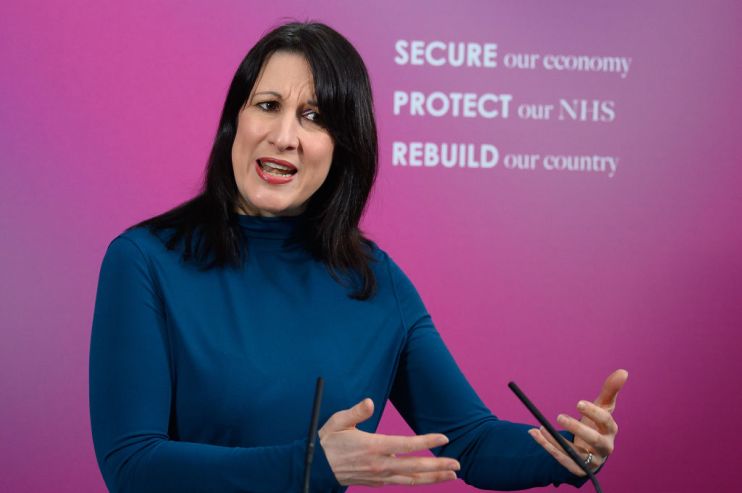Labour’s Rachel Reeves vows to restore trading ties with EU if elected

Shadow chancellor Rachel Reeves has vowed to renew and enhance the UK-EU trading partnership if Labour is elected at the next General Election.
Reeves said Boris Johnson had a “blind spot” while dealing with Brussels post-Brexit and that “gaps have not been filled” in the UK-EU trade deal in the past seven months.
British exports to the EU slumped significantly in January when the UK left the single market and customs union, however they have since recovered.
Reeves told the Financial Times that Labour would set about improving the trade deal by reducing bureaucracy on the movement of goods like food, drink and pets.
She hinted that this would come through signing up to an agreement to follow Brussels’ food and health safety standards, which would eliminate the need for the majority of checks on goods between Great Britain and Northern Ireland.
The former Bank of England economist also called for a deal to be struck to see British musicians able to travel and perform more easily in the EU and for UK professional qualifications to be recognised on the continent.
She also defended Labour’s decision last December to vote for Johnson’s UK-EU trade deal.
“No deal would have been a disaster,” she said
“We thought the deal would be built on, but gaps have not been filled in.”
Reeves was appointed shadow chancellor by Sir Keir Starmer in May, after Anneliese Dodds was sacked after just a year in the job.
One of her first major policy announcements was a “Buy British” push, which would see Labour boost UK manufacturing and force government departments to buy more locally made goods.
She likened this to Joe Biden’s “Made in America” policy platform during the 2020 presidential election.
“Biden is ripping up a lot of the rules, and the economy there is growing faster and producing jobs that support families,” she said.
Reeves is also setting the government five tests for its stewardship of the post-Covid economic recovery.
This includes boosting exports, assessing whether UK industries are improving, whether job security is getting better, whether economic growth is spread evenly across the country and whether the recovery is environmentally sustainable.